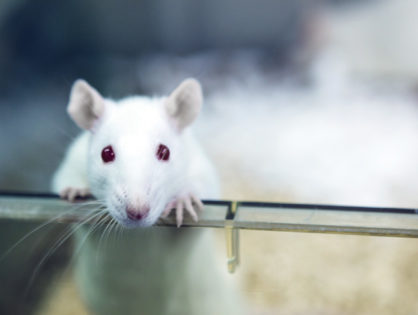Pregnant women are particularly susceptible to sleep-disordered breathing. Obstructive sleep apnea (OSA) in pregnancy is associated with poor pregnancy and fetal outcomes. Oxidative stress caused by intermittent hypoxemia and reoxygenation may impact pregnancy health. We hypothesize that pregnant women with OSA have a pronounced oxidative stress profile.
A case-control study was performed to study oxidative stress markers in the serum of pregnant women with or without OSA. Patients with OSA were identified between 2003 and 2009. Contemporaneous controls were pregnant subjects without apnea, gasping, or snoring around the time of delivery. Serum markers of oxidative and carbonyl stress were measured by spectrophotometric/fluorometric methods. Multiple linear regression analysis was used with a model including age, body mass index at delivery, history of diabetes, and gestational age.
Results
Serum samples from 23 OSA cases and 41 controls were identified. Advanced oxidation protein products, a marker for oxidative stress, and advanced glycation end products (AGEs), a marker for carbonyl stress, were significantly lower in women with OSA than in controls (p value <0.0001). Total antioxidant capacity was higher in women with OSA in comparison to controls (p value <0.0001). The difference in AGEs remained significant even after adjusting for confounders.
Conclusion
Contrary to our hypothesis, the results of this study suggest that pregnant women with OSA have higher antioxidant capacity and lower oxidative and carbonyl stress markers compared to controls, suggesting a possible protective effect of intermittent hypoxia. Whether OSA in pregnancy impacts oxidative stress differently than OSA in the general population remains to be confirmed.



